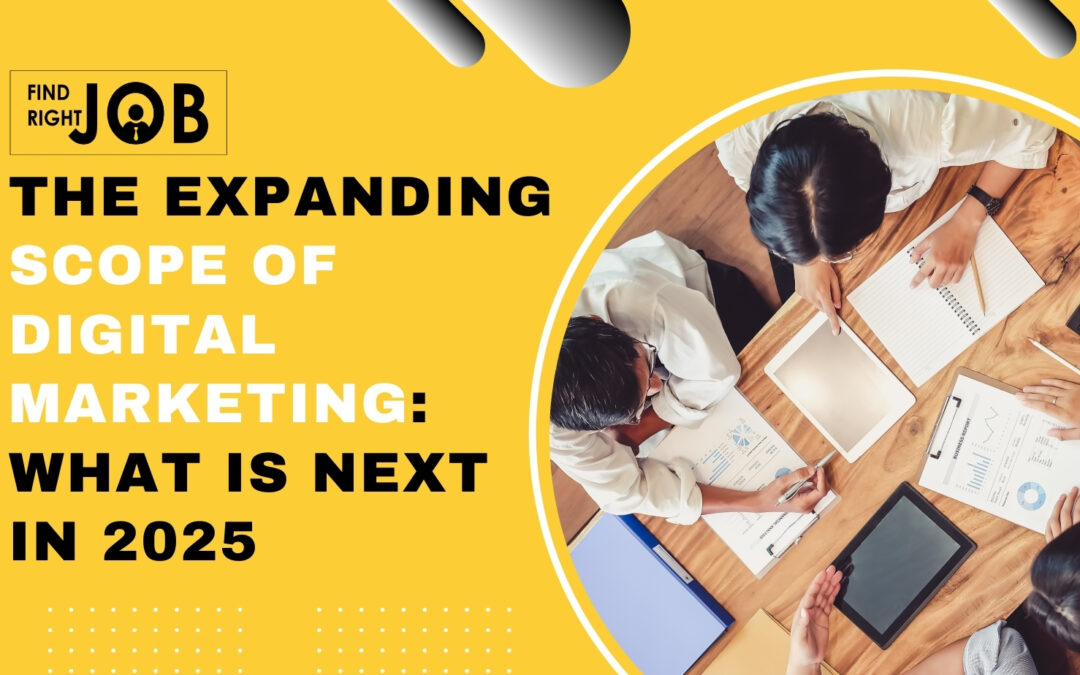The scope of digital marketing is huge as it encompasses different channels and techniques for reaching the target audience. Growing importance is driven by increased engagement online and how customers are connecting with brands. As the technology advances businesses need to adapt to interact with customers properly. Knowing how big the scope of digital marketing will be in 2025 can help a company stay ahead. Marketers should be aware of trends to apply relevant strategies. The fast development of digital tools and platforms is reshaping how brands engage with audiences.
The Development Scope of Digital Marketing
Digital marketing has really evolved from the initial stages where traditional methods have been replaced with digital channels. Business people used to rely on print ads, TV, and radio for advertising purposes. The development of the internet introduced digital marketing, which presented new ways to connect with the consumer. Technologies such as AI, mobile technology, and data analytics changed the game of marketing strategies.
Early Stages:
- From traditional marketing through television, radio, and print media to digital media such as websites, emails online ads, and emails.
- The internet has opened a new path for businesses to communicate with customers in a more well-planned manner.
Technological Developments:
- AI: Personalized marketing, automation, and better customer insights.
- Mobile Technology: Increased accessibility of marketing and enabled brands to reach customers on the move.
- Data Analytics: Improved targeting, campaign performance tracking, and customer behavior analysis.
Key Milestones:
- Social Media: Facebook, Instagram, and Twitter changed the face of brands communicating with customers.
- SEO: With increased competition for online visibility, search engine optimization was essential for reaching organic traffic.
- Mobile Optimization: Responsive designs and mobile-friendly content became essential with increased usage on mobile.
Important Factors of Digital Marketing
Digital marketing is made up of many modules. They include SEO, which improves the organic search presence, and social media marketing, which focuses on engagement. It also has content marketing, PPC advertising, which provides targeted reach, and email marketing, through which communication is personalized. All these strategies help the business make brand awareness to effectively engage customers and drive conversions across various ways.
Search Engine Optimization
- The organic search ranking is important to increase traffic and visibility.
- The SEO tools like google analytics, and semrush help to research keywords, make backlinks, and check performance.
Social Media Marketing
- Youtube ,instagram, and linkedIn are special platforms that offer unique ways of engaging with the audience.
- Developing viral content and using engagement strategies such as polls, challenges, and influencer partnerships help increase brand awareness.
Content Marketing
- Blogs, videos, and infographics provide valuable information to attract and retain customers.
- Personalization and significance in content increase engagement because it addresses the special needs of customers.
Pay-Per-Click Ads
- Google ads and facebook ads offer targeted paid campaigns.
- Influencer marketing is used to build credibility and expand reach, thereby converting.
Email Marketing:
- Email automation and personalization increase efficiency and customer engagement.
- Newsletters and drip campaigns are becoming more important for nurturing leads and relationships.
The Future of Digital Marketing
The future of digital marketing will embrace innovation through the efficiency and precision brought by AI and automation. Hyper-personalized content, which is the outgrowth of advanced data analytics, will deliver experiences for the individual consumer. Voice search, visual search, and other interactive technologies like AR/VR will redefine the ways brands connect with consumers. Social commerce and influencer partnerships will rise even more, and issues of privacy and transparency will emerge as essential for trust in consumer relationships. As platforms evolve, marketing strategies will focus on adaptability and seamless multi-channel integration for maximum impact.
CONCLUSION
Technological development and shifts in customer behavior are fast-growing the scope of digital marketing. As the development of digital tools and platforms advances businesses have to be flexible and innovative enough to compete with others. Using newer trends such as AI, personalized content, and data-driven strategies helps companies connect more effectively with target audiences. Adjustment to this changing landscape thereby ensuring long-term success in the fastly changing world of the scope of digital marketing will be important for businesses.

